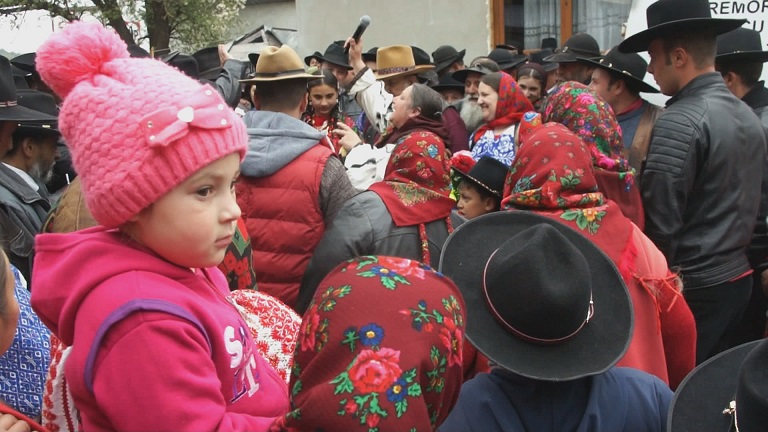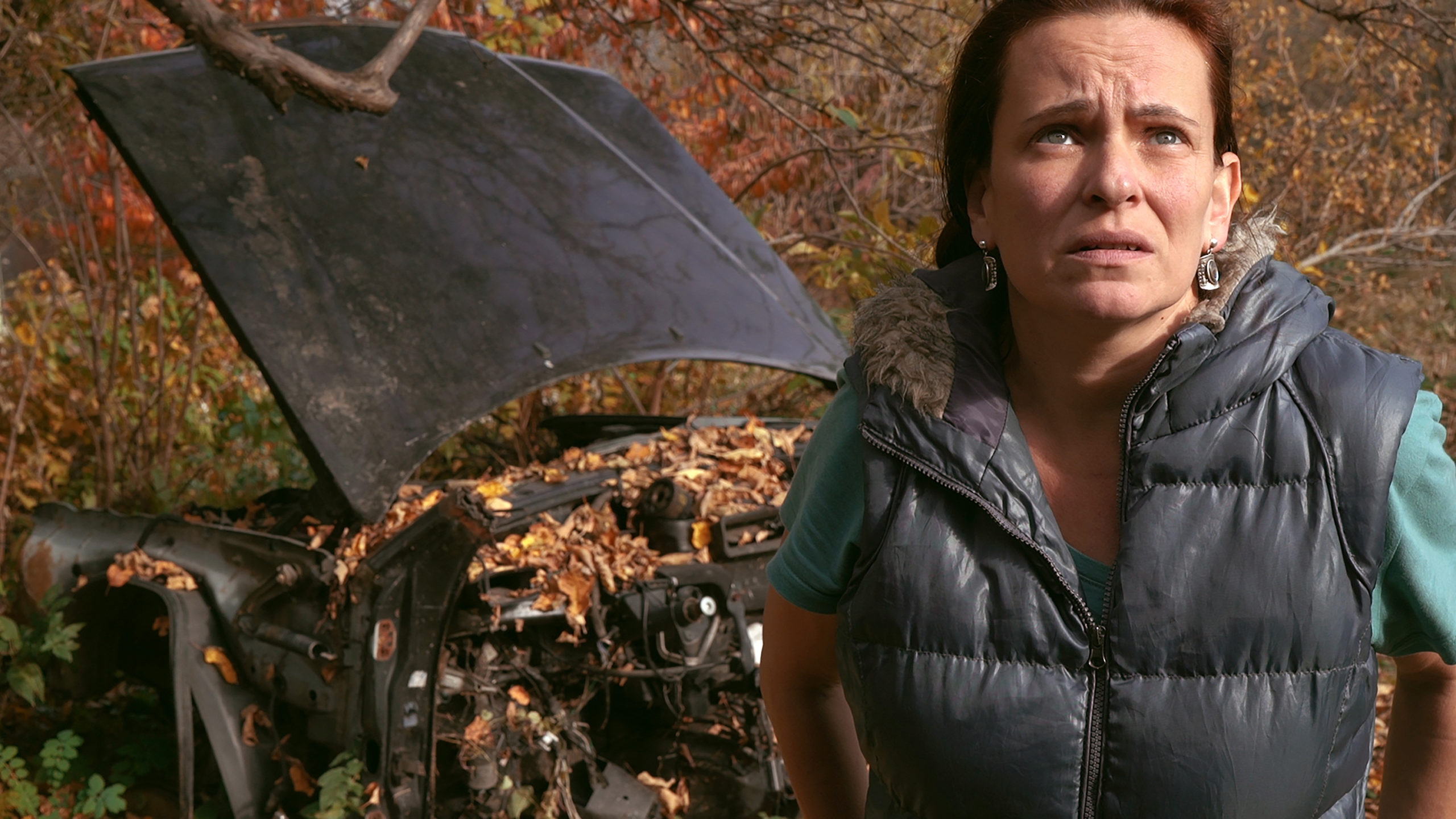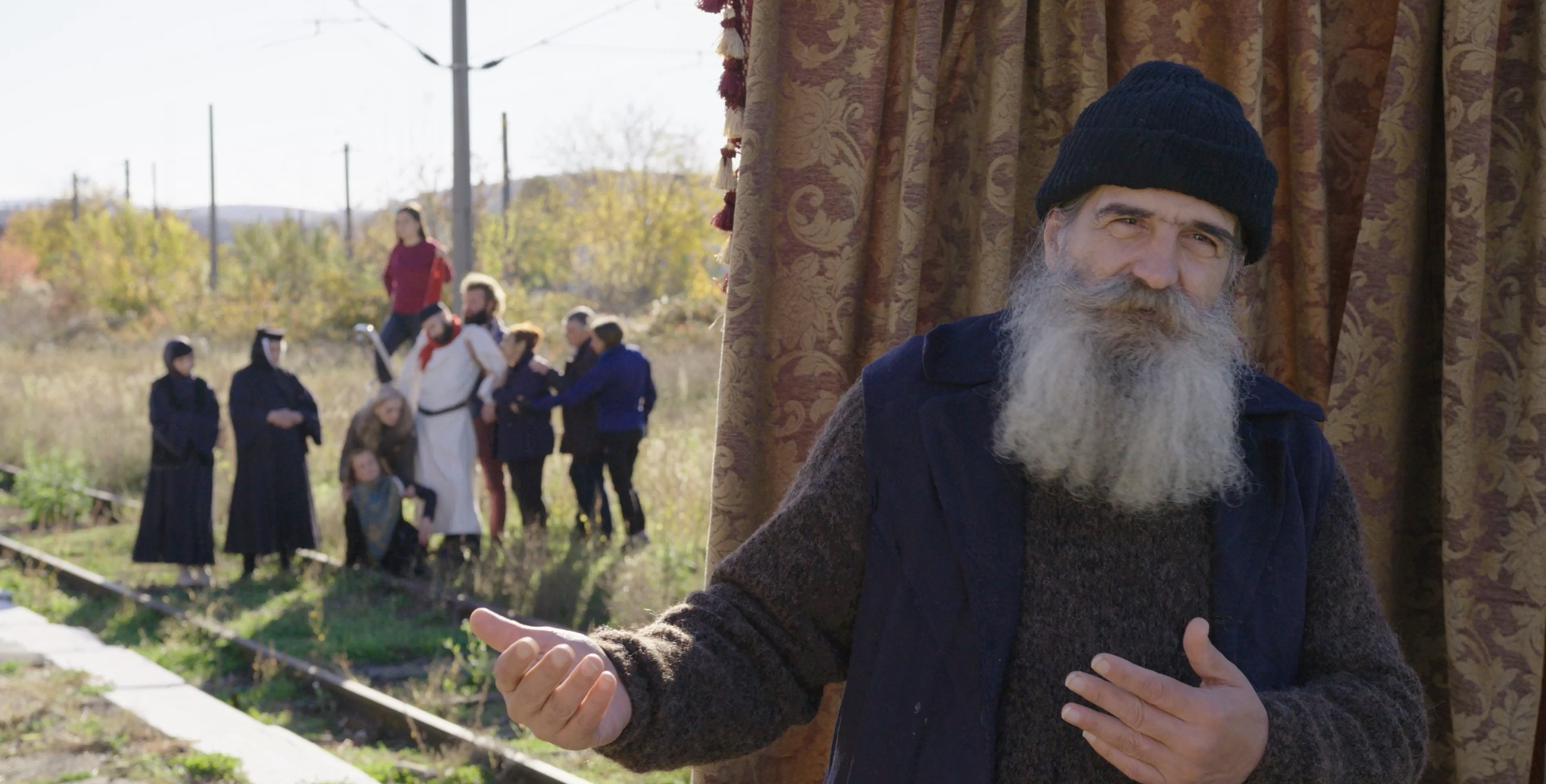A European poet of freedom, an actress fighting for her family, a future saint with a mesmerizing gaze, and a monk who abandoned his son. Five cinematic perspectives on contemporary Romania show a country full of contrasts, where modernity clashes with tradition, the sacred with the profane, and the past refuses to fade into oblivion.
They could never be sure that spring would come back.
Buried under mountains of snow,
They didn’t know whether the sun would melt them.
And every year they waited, impatient,
For the buds to open again[1].
The above excerpt from the poem Agglomeration by Ana Blandiana, the protagonist of one of the films, serves as a perfect motto for our review. It can be read in relation to the country and its history or interpreted as an expression of the anxiety of each of the characters, this miniscule community that can be hardly treated as representing the entire nation, but whose concerns and hopes are shared by many of Romania’s citizens – comments festival director Krzysztof Gierat.
Romanian cinematography has been a favourite among international festival juries and cinema audiences for several years now. Names such as Radu Jude, Cristian Mungiu, or Cristi Puiu are associated with very good, socially engaged cinema, often dealing with the past. This spring, Focus on Romania will be an excellent opportunity to check out the stories told by Romanian documentary filmmakers and whether they are as outstanding as those in award-winning fiction films.
Tradition
There is a tradition within aristocratic Transylvanian families of passing down the chalice. This seemingly unassuming item, a relic from the past, which appears to be an anthropological curiosity in those households, fulfils an important role. It is a crest, a symbol of prestige, which can only be inherited by the male descendants of the family. Young arranged marriages, such as those depicted in the documentary The Chalice: Of Sons and Daughters, directed by Catalina Tesar and Dana Bunescu, grapple with the immense pressure of producing a son. Difficulties in conceiving – or giving birth to a daughter – lead to family conflicts, and even threaten the end of the marriage. In order to avoid tragedy, young women opt for selective abortion



Hope
Can poetry pose a threat to dictatorship? The poems penned by Ana Blandiana not only outraged Nicolae Ceaușescu and his entourage but, above all, moved and captivated readers and literature enthusiasts also outside communist Romania. The poetry of this legendary author transcended borders; her volumes were published in the West, yet she chose to remain in the country despite the opportunities to leave. Modest and smiling, the protagonist of Between Silence and Sin did not see herself as a political authority, although some saw her as a potential government member after the dictator’s downfall. As Diana Nicolae’s film shows, the new regime did not change the poet, who remained a master of words – still true to herself and critical of authority.
It wasn’t politics but the partner who proved to be a threat to the protagonists in Too Close. He wasn’t a drunk; he came from a respected family, and attended church every Sunday. When actress Andrea got involved with him, she had already gone through an unsuccessful relationship, resulting in a teenage daughter. Everything seemed to be falling into place in the new relationship: a home in the countryside, waiting for the birth of a child. However, it all falls apart when Andrea discovers the truth about her partner’s dangerous tendencies. The man ends up in prison, from which, much to the horror of the protagonist and her daughter but to the delight of the neighbours convinced of his innocence, he is about to be released. Director Botond Püsök accompanies Andrea in her most difficult moments when she decides to fight for justice and a better future for her family.
Faith
Get on the bus, we’re going on a pilgrimage! Aleksander Solomon, in his documentary Arsenie. An Amazing Afterlife takes viewers on a fictional journey tracing the footsteps of a real future saint. The very photography itself is captivating, featuring the face of a young, handsome monk with a mesmerizing gaze. And rumors of his martyrdom only add to the replicated image. All of this makes it hard to forget Arsenie Boca. Persecuted by the communist authorities, it’s no wonder that the priest became a symbol of the fight against the cruel regime as well as the most prominent Romanian miracle worker prayed to by countless believers.


Faith has stirred up quite a bit in the past for the director of the documentary Holy Father. The arrival of a child provokes future parents to confront their own families. It isn’t easy for both of them, as they come from broken homes. Paula has several cautious online conversations, but her partner, the film’s director Andrei Dascalescu, who lost his mother a few years ago, decides to inform his father personally. Andrei embarks on a remarkable journey all the way to the monastery at the foot of Mount Athos. It was there that his father, now a devoted monk, found his place on earth years ago. The director of the film has high expectations. He wants to make up for lost time, understand his father’s decision, and above all, learn how to become a better parent himself.
Films featured in Focus on Romania:
- Arsenie. An Amazing Afterlife, dir. Alexandru Solomon, Romania, Luxembourg, 95’, 2023
- Between Silence and Sin, dir. Diana Nicolae, Romania, USA, 98’, 2024
- The Chalice. Of Sons And Daughters, dir. Catalina Tesar, Dana Bunescu, Romania, 84’, 2022
- Holy Father, dir. Andrei Dascalescu, Romania, 75’, 2020
- Too close, dir. Botond Püsök, Romania, 85’, 2022
Romanian productions have also been invited to two competitive sections.
Focus on Romania is partnered by the Romanian Cultural Institute in Warsaw. The event takes place as part of the Romania-Poland Cultural Season 2024-2025.
Passes for the 64th Krakow Film Festival are on sale now!
The Krakow Film Festival is on the exclusive list of qualifying events for the Oscars® in the categories of short film (live action, animated, documentary) and documentary feature, as well as a recommending event for the European Film Awards in the same categories.
The Kraków Film Festival is organised with the financial support of the Municipality of Kraków, the Ministry of Culture and National Heritage, the European Union’s Creative Europe program, and the Lesser Poland Province. The co-organiser is the Polish Filmmakers Association and the main organiser is the Krakow Film.
The 64th Krakow Film Festival will be held in cinemas from 26 May to 2 June and online across Poland on the KFF VOD platform from 31 May to 16 June 2024.
[1]Ana Blandiana, Agglomeration, translated by Viorica Patea & Paul Scott Derrick